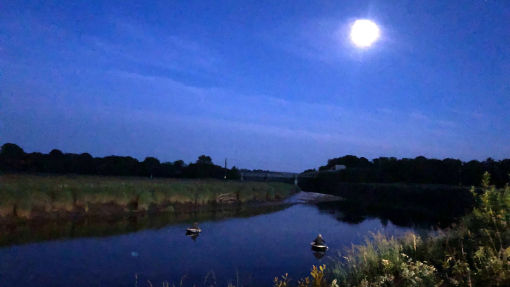UNESCO-MOST BRIDGES submission accepted by UK Parliamentary inquiry into Wales’ industrial legacy
The submission from UNESCO-MOST BRIDGES to the UK Parliamentary inquiry on The Environmental and Economic Legacy of Wales’ Industrial Past has been accepted.

The contribution, titled Coastal Tales: Kilvey Hill (Swansea) and the Teifi as Projects of Contentious Urban Woodland and River Restoration, is based on 2024 fieldwork with Tywi Coracles as part of the ongoing Coastal TALES project. Professor Louise Steel, Professor of Archaeology at the University of Wales Trinity Saint David (UWTSD) and Director of Research: UNESCO-MOST BRIDGES (UK) Hub welcomed the news, stating:
“The acceptance of this submission highlights the significance of recognising and preserving the intangible cultural heritage of Wales’ post-industrial landscapes. It is encouraging to see these perspectives informing discussions on the future of these historically significant sites.”
The inquiry, conducted by the Welsh Affairs Committee, is examining the social, economic, and environmental impact of Wales’ rich industrial heritage. Over the past two centuries, extractive and heavy industries have profoundly shaped the Welsh landscape. While many of these industries have now declined or ceased, their effects on local communities persist. The Welsh Affairs Committee is now considering how to navigate their environmental and social legacies in the context of 21st-century economic realities.
The Coastal TALES research into the intangible heritage of the coastal communities of south-west Wales will contribute to this critical discussion. Findings highlight the importance of recognising post-industrial landscapes not only as ecological sites but also as cultural treasures. Successful and inclusive restoration efforts must safeguard the intangible heritage of traditional users and local communities, ensuring that those with generational ties to these environments remain integral to their future management and transformation.
Professor Steel further emphasised:
“Research within Coastal TALES increasingly demonstrates the unique value of intangible cultural heritage and traditional knowledge in helping communities innovate, adapt, and respond to environmental uncertainties. By integrating these perspectives into restoration efforts, more inclusive and sustainable futures can be created.”
The BRIDGES initiative is a priority programme within UNESCO’s Management of Social Transformation (MOST) programme. It fosters transdisciplinary, humanities-inclusive research addressing the Sustainable Development Goals (SDGs). The UNESCO-BRIDGES (UK) Hub, based at UWTSD, plays a central role in this work, supporting innovative and collaborative approaches to environmental and social challenges. Through this initiative, the voices of local communities remain central to policy discussions, ensuring that cultural heritage and sustainable development go hand in hand.
Further Information
Arwel Lloyd
Principal PR and Communications Officer
Corporate Communications and PR
Email: arwel.lloyd@uwtsd.ac.uk
Phone: 07384 467076
